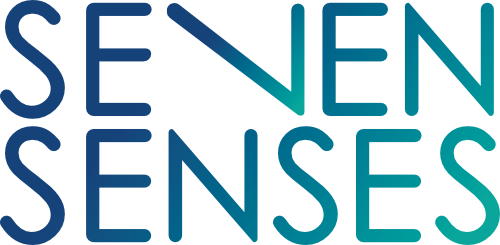Imagine, someone knocks on the door. It’s a person you have never seen before. Different skin colour, different clothes, different hair, funny accent… He says he wants to interview you about your daily life, for some sort of research. Kind and welcoming as you are, you let him in, offer him a chair and a drink. The interview starts. “What’s your opinion about organisation x and project y?” Confused as you are about this sudden difficult question about an organisation and project you hardly know, you decide not to look stupid and just answer, stuttering “I.. I.. I think it’s good”. The following questions make you as nervous as a child during her first test at school. By the time he leaves you feel confused and intruded, not knowing what he will do with the information you just gave… When conducting interviews we are often focused on our own goals of getting information. Especially in Participatory Action Research this is detrimental. This blog is about how to do an interview and to avoid bloopers, with a special focus on Participatory Action Research.
Interviewing in Participatory Action Research
Conducting high quality, in-depth interviews for Participatory Action Research -and other types of research- can be of tremendous value for policy recommendations and development projects. The information that the respondents provide, helps to (co-)create the right solutions for the right problems. However, the way we formulate our questions determines to a large extent the answer that we get. The line between getting the answer which is socially acceptable and the answer that represents reality is extremely thin, especially when you’re a newcomer to the community. Yet many people tend to underestimate the complexity of interviewing and conduct their interviews without knowing how to properly formulate questions, ending up in very awkward situations with the respondent…
Types of interviewing questions you want to avoid
Recently I gave interview training to my SevenSenses Challenge trainees, who currently conduct research about sanitation (“Twekembe Water Challenge”) and arts (“Street Angels Challenge”) in the slums of Kampala, Uganda. During that training, I gave them 10 types of questions that can ruin your interviews and consequently your research results. We practiced how to do an interview of good quality. I thought it would be valuable not only for them but for all (action) researchers in the field, so here they are!
Note: The lines written in italics are thoughts, not quotes, to show you what respondents could think, but don’t say.
1. Disrespectful questions. “How do you survive as a poor farmer?” What the interviewer can merely see as a compliment (‘you must be so tough to be able to survive here!’), the respondent could see as disrespectful (‘a POOR farmer?! Me?! YOU are the one that is ‘poor’, all you probably have is money and nothing more than that!’).
2. Giving a false feeling of responsibility. In our exploration of chains of causality, we tend to ask why and why and why. For example: “Why do you never boil your water?” ‘Oh.. Sorry, are you going to take me to jail for this or what??’ Try to avoid the word ‘why’ in these cases to make sure the interviewee doesn’t feel like they are being accused of a crime. That does not mean you may never ask ‘why’ again. Just know when it is appropriate.
3. Putting words in someone’s mouth. It is very hard to let go of your own assumptions and opinions during an interview. Often, while asking questions, we already have some kind of ‘solution’ in mind. That’s how we sometimes tend to ask questions like: “Don’t you think it would be a good idea to organize a workshop?”, or “The solution should be building an orphanage, right?” Basically, you are asking for a socially acceptable answer, forcing a stuttering “yes” instead of the truth. Ask your question in a neutral way to let the participant speak freely, such as: “What do you think could be a solution to…”
4. Unnecessarily difficult questions. Since we are very into the research matter, we tend to forget that others are not so familiar with the subject. Even simple questions are sometimes made unnecessarily difficult or confusing, like for example very long questions, or double negatives: “So in the morning, you don’t make no breakfast?”. Keep it simple!
5. Taking your assumptions for granted. “How often are your children playing in the waste?” ‘Oh. Are they? Well, let me just say… five times?’ Think about each question you ask: are there any (false) assumptions behind it?
6. Too open or too closed questions. Recognise those awkward moments of silence, insecure body posture, questioning faces? Yup. High chances your question was too open or too close. Try to adapt the openness of your questions to the type of information you are looking for and to the ease with which people talk to you.
7. Giving the feeling something he/she did was wrong. Interviewers have emotions too (yes, really). When we feel compassion for someone who shares a highly emotional story, we tend to share what we would have done or how the situation could have been prevented. “Couldn’t you just scream for help when they robbed you?”. Seriously, don’t. The respondent has probably thought over and over what could have prevented the situation.
8. Coming up with unwanted advice. When people tell us about their problems and daily challenges, we tend to give them advice, often unwanted. “Why don’t you just save some money every month so that you can have surgery in a year?”
9. Leading questions. One of the most useless things to do in research is trying to make your data ‘fit’. In doing so, we tend to ask leading questions so that we get the answers we want. For example: “Do you think diarrhoea is caused by drinking dirty water?” ‘Uhhh yes…’Instead you could ask: “What do you think could be a cause of diarrhoea?”
10. Creating false hope. “What do you think we can do to…” Note the word ‘we’. ‘Oh? So you are going to solve my problems?? Nice!’ The answer you (especially as a foreigner from ‘the west’) will get to this question is probably one that costs a lot of money -and seriously, you can’t blame them.
For all (potential) interviewers out there: I hope this blog will be of use to you when you go out into the field! Remember: asking the right questions in an appropriate manner is crucial; without the true answers your research is useless. And useless research means no funding for your intervention project. Practice your interviewing skills and prepare yourself well!
At SevenSenses we offer customized interview training. Check out the possibilities!


